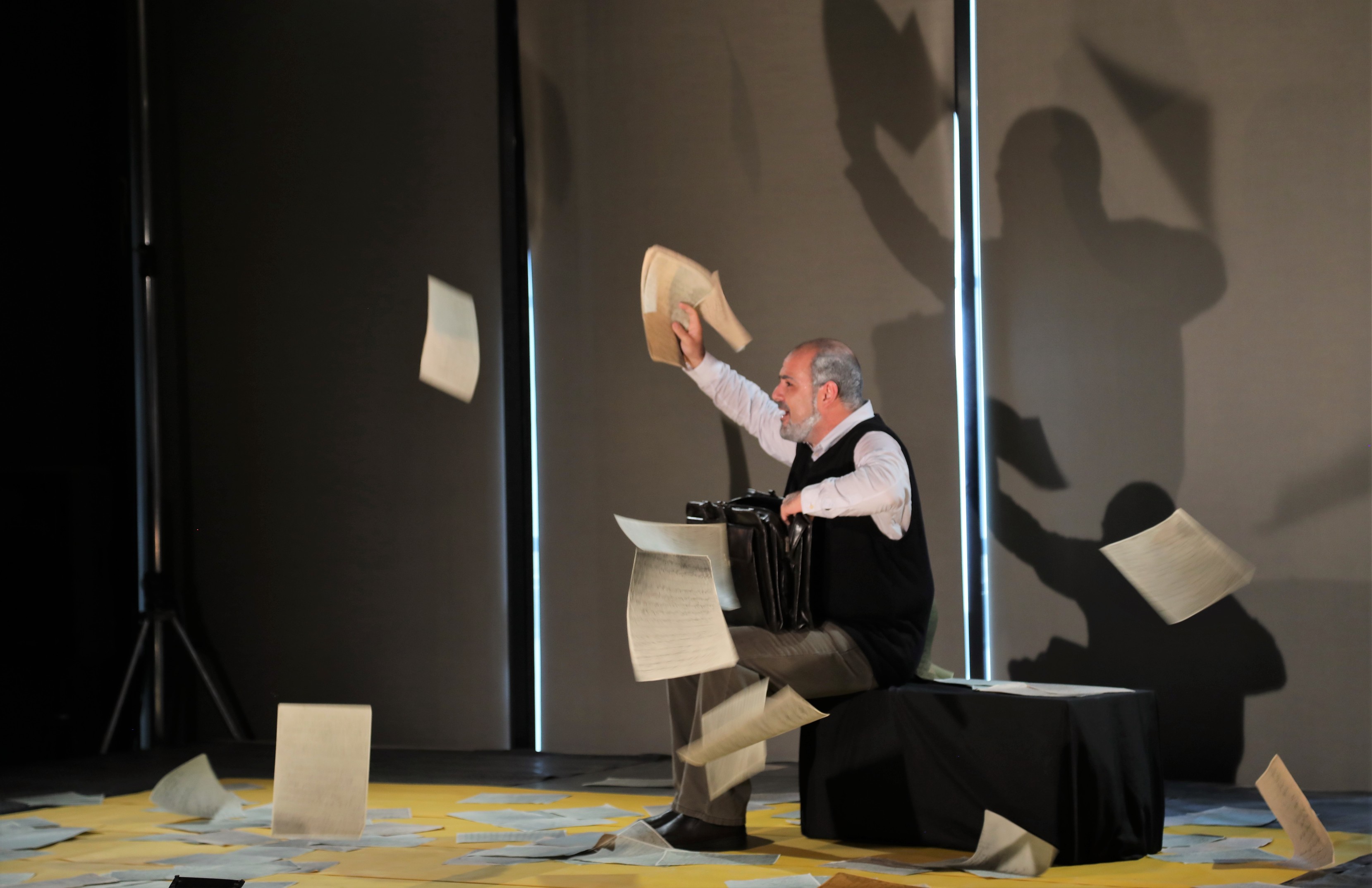

18 October 2018
Ramallah – The A. M. Qattan Foundation’s Cultural Centre hosted, 3 performances of the play Taha, written and performed by Amer Hlehel and directed by Yousef Abu Wardeh. One performance targeted students, while the two other shows welcomed the larger public (One in Arabic and the other in English).
The play narrates the biography and works of the late Palestinian poet Taha Mohammad Ali. It simulates his forced displacement from Saffuriah, passing through Nazareth, up to Haifa and then to Jbiel (Byblos), Lebanon, ending up in Reineh . However, the story of our poet is not of a sole hero; it is the story of 1.5 million Palestinians who chose to stay in their land following the 1948 Nakba and who endured subsequent difficulty and suffering.
“You have such big dreams; they are bigger than any testimony.” These were the last words said to the poet by his father. And indeed, Ali’s dreams grew until he became one of the most prominent Arab poets and authors.
Hlehel sheds light on the milestones of Ali’s family through their displacement from one country to another. Ali writes in order to treat his wounds through poetry. He at times evokes his ill-tempered father, his kind-hearted mother, his sister Ghazalah, or his lover Ameera in his work. The place occupied the largest part of his soul, and he described locations—from the glorious Saffuriah to his journey through Haifa—in his writing, stretching his descriptions as far as they could.
Hlehel believes that Taha Mohammad Ali is an inspiring modern poet, especially with his unique poetry and life story that spans from World War II to recent times.
Hlehel researched the poet’s life for two years and was inspired by Adina Hoffman’s biography on Ali, My Happiness Bears No Relation to Happiness. Hoffman is an American writer who was the spouse of the English translator of Ali’s works; she spent three years with the poet and wrote several essays on his life. Building on these materials, Hlehel’s search culminated in the final play, performed in Palestine and abroad.
Commenting on the importance of performing to younger generations, Hlehel explained that the theatre is an artistic and imaginary tool that can be used to deconstruct the world in order to see it from a broader perspective.
On the morale of the play, he added: “It is important to show the story to this generation because it is the story of an entire nation; what we lack today is a unified message that stems from the core point of transformation in our history: Al-Nakba. If we raise our children based on this, we will be able to communicate a single message as one nation.”
The first performance targeted school children from grades 8-10, out of the Foundation’s commitment to highlight this conjectural stage of Palestinian history, namely the forced displacement of Palestinians.
The play was attended by 191 students from the schools of Al-Tireh, Biet Ur Al Fuqa, Amin Al-Hisseini, Yabrud secondary school and Al-Mustqbal private school.
Expressing his views of the play, teacher Jamal Saad Al-Dien from Al-Tireh school explained, “It was an hour of shorthanded history of a people in an interesting way; it reminds us of the current situation of our people and the disasters they faced because of the occupation.”
Twelve-year-old 8th-grader Baraa Anwar described the play in a key sentence: "The importance of the homeland, no despair, patience, helping others and learning about the poet Taha Mohammad Ali.”
Called the “Lover of Saffuriah,” the late poet was a resistance writer whose works continue to remind us of how poetry can act as a tool that summarises the poet’s life from the Nakba until his first appearance on a London stage.
The play is part of the annual cultural program 2018, organised by the Foundation.
